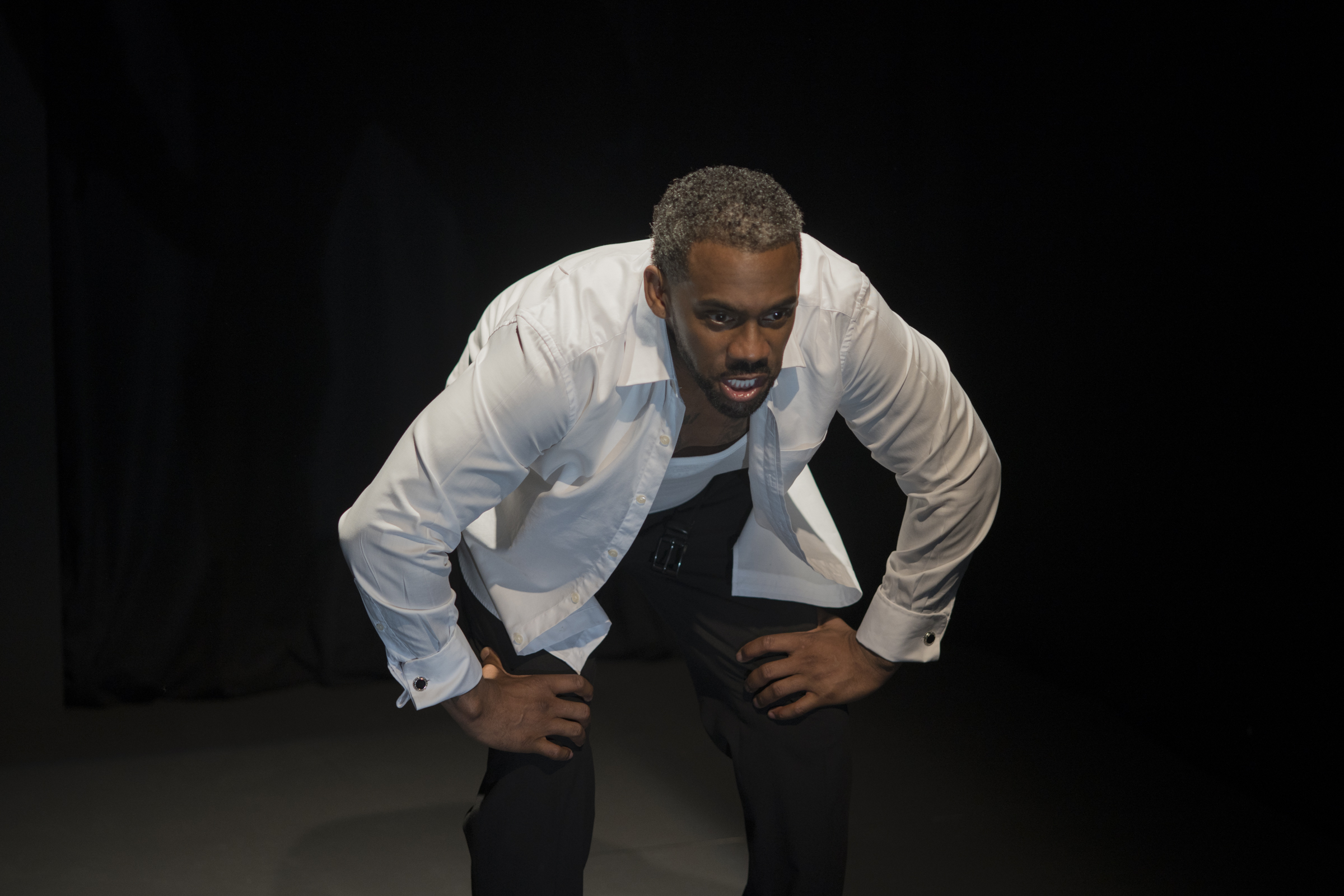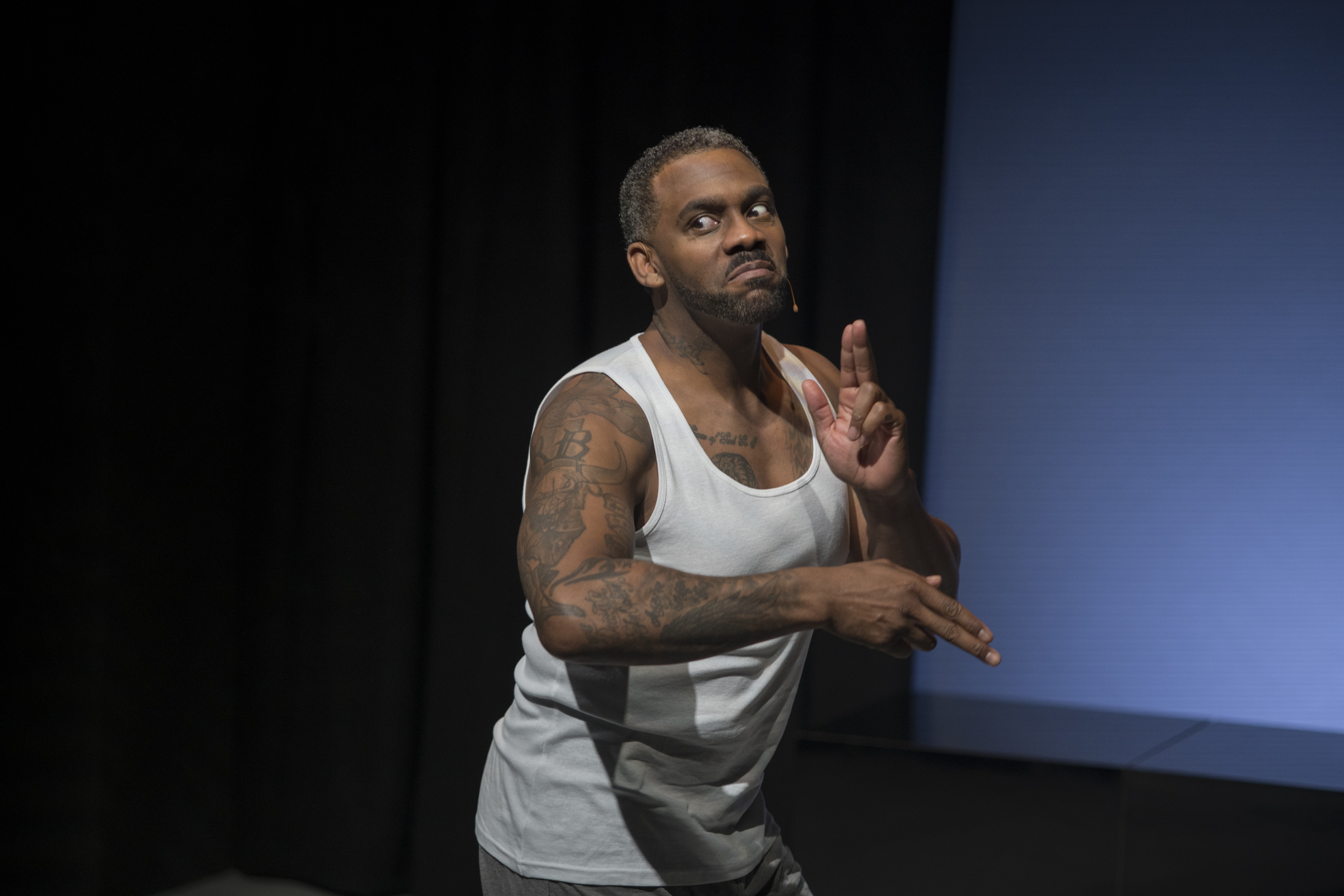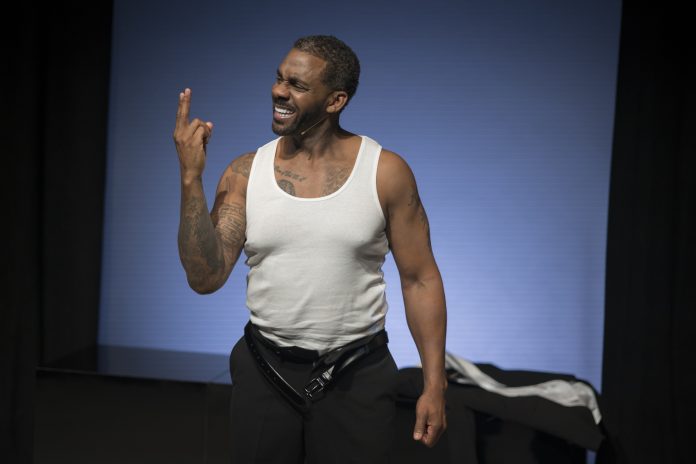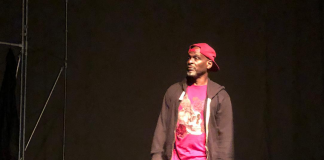What makes a ‘Typical’ day?
For many, going out, meeting friends or staying in, watching TV is typical. But for a Black man, a typical day can often involve trauma and abuse.
‘Typical’ by Ryan Calais Cameron tells the heart-breaking story of British ex-serviceman Christopher Alder, who was brutally murdered by the hands of the police in the UK.
Played by Richard Blackwood, this one-man performance tells an extremely powerful story that exposes the horrific truth around police brutality and racism.
Having watched plays of a similar nature, I was very intrigued to see how this play would portray such a raw and important story to the audience. Written in rhyme and performed as a monologue, we watch Blackwood attempt to have a non-typical day.
From divorce to loneliness, Blackwood represents many middle-aged men who just want to make the most of their lives. Determined to beat the blues around his failed marriage, he decides to go out for a drink with friends. What he imagines would be a night of fun turns out to be the worst night of his life. After going for some drinks with his friends, he is left on his own to carry on the party. He is initially refused entry to a club because of his race, but is later let in.
In the club he faces many uncomfortable situations including being fetishized by white women, being racially abused, beaten up and told to “go back to his country” As an ex-serviceman who fought for the UK, being told to go back “home” by white men who most likely bled the system rather than bleed to save the country this is particularly ironic. After leaving the club he is badly beaten up by these racist white men and ends up in A&E.
Sadly, whilst in A&E, the hospital staff ignore him and treat other people who have come in after him. Rather than treating his injuries, the staff brand him as “aggressive” after he pleads for help. They call the police to deal with him, making the assumption that he likely received those injuries after attacking someone else, rather than being an innocent victim. I couldn’t help but link his treatment to the ongoing negligence Black women face during child labour.

Just like Blackwood’s experience of being neglected, Black women in the UK are 5 times more likely to die during childbirth than their white counterparts. This can be due to incorrect notions that Black people can handle pain better and be slow at taking them seriously – just like with Blackwood. I find this statistic particularly disturbing as a huge number of frontline workers in hospitals are Black themselves.
The story sadly ends in tragedy when Blackwood is handed over to the police. Stripped off his dignity, identity and humanity, Blackwood is seen as a faceless, dangerous Black man rather than a human being. His only crime is the colour of his skin.
There are bad apples in all areas of society and the police force is not exempt; police brutality is nothing new, I know men who have suffered hard blows, been shoved against the wall, stripped down to their socks and arrested with no explanation other than their skin colour. A skin colour so rich, roots that go back to royalty, and a strength that can’t be imitated clearly overwhelms and intimidates many people to this day.
Studies show London’s Black population at the last census was 1,088,447. In 2017–18 the Met used force 22,989 times against Black people. This is the equivalent of one incident for every 50 Black people in London. This rate is higher than any other police force including those covering large urban areas such as Greater Manchester and Merseyside. According to the data, a Black person in London is four times more likely than a white person to have force used against them by a Met Police officer, as a proportion of the population.’ — BBC.co.uk

Watching this play reminded me of a powerful documentary called 1500 and counting by Siana Bangura that investigates police brutality in the UK and deaths in custody. Christopher Alder’s story is featured in this documentary and we get to see the impact it has had not only on his family’s life but the Black community.
I found the play simple yet beautifully written. The spoken word throughout kept me engaged and I often felt swept away by the beautiful poetic rhythm Ryan had.
Watching this play on screen rather than theatre has its pros and cons. I was able to see facial expressions and angles that I would miss in live theatre, however, the energy sometimes felt lost and at times slightly flat when watching through my laptop.
Although I loved the story and simplistic set, at the start of the play I found it hard to take Blackwood seriously in his role. I think this was in part due to his big personality and presence as a comedian, which felt at odds with the seriousness of the role. I also found his accent very confusing and distracting to the play. He has a strange Jamaican/ Brummie accent but is later revealed to be from West Africa.
‘Typical’ is a hard-hitting slap of reality to many people. It is bold, poetic, sad and truthful.
I’m not sure if this was deliberate or down to his acting abilities. I almost wished that the character was played by a lesser-known West African actor instead in order to help the audience concentrate on the dialogue instead. However, by the second half of the play, Blackwood managed to win me over. I found his end monologue heartbreaking yet believable to watch.
Theatre is a space that can really allow these stories to be heard to create awareness for audiences who will never experience a ‘typical’ Black day.
‘Typical’ is a hard-hitting slap of reality to many people. It is bold, poetic, sad and truthful. It may not be perfect, but it perfectly exposes how brutal the system is to those who are Black. I would encourage everyone to watch this play, especially as it’s so easily available to watch with Soho Theatre.
The fight for justice continues for Christopher Alder and his family and although justice is yet to be served, I am glad this play exists and has had the recognition it deserves.
Although the fight continues for justice, awareness prevails.
* 10% of the proceeds after costs will be donated to Inc Arts Minds, a charitable fund created to support the emotional well-being of those affected by systemic and structural racism in the arts.




























